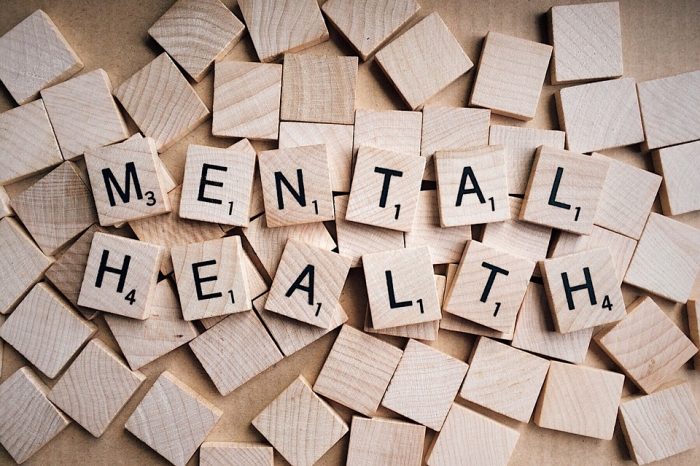

Mental health is a serious concern for today’s college students. This article will guide you in identifying the signs and symptoms of such issues and when and where to seek help. Mental health issues can be life-threatening if not treated early. In the event that you either experience any of these issues or know someone who is, take action and talk to someone. The five most prevalent issues are depression, suicide, anxiety, addiction, and eating disorders.
Depression
According to one study, it was found that 36.4% of students in college experience depression. Depression is the number one reason for many dropouts. If left untreated, it can result in other mental health issues or suicide. Depression is caused by a combination of psychological, biological, and environmental factors.
The symptoms of depression differ from one person to another. There are however some similarities. Some symptoms include:
Change in sleeping patterns
Change in appetite
Sadness
Feeling powerless or hopeless
Difficulty in concentration
Not enjoying activities that a person once did
Experiencing extreme anger or apathy
Talking about death or suicide
Experiencing some of these symptoms with regularity or experiencing all of them is a clear sign of depression and you require help. For college students, it is more difficult to talk about such issues disturbing them. This is because of insecurities and fear of isolation or embarrassment. For an incoming freshman, the stress of making new friends, being away from home, and choosing classes for the semester may be overwhelming. This leads to feelings of inadequacy and helplessness, especially when they realize that they are not having as much fun as everyone had told them they would. “College years bring a lot of promise but also a lot of pressure. People who just recently graduated school are required to make life-defining decisions. As such, it is the job of the educators to help handle that pressure” – stated Richard Nolan, co-founder of EduBirdies in an interview on their official website.
In case you know someone suffering from these symptoms, encourage them to seek medical attention. In the meantime, you can be a good listener when they attempt to discuss some of these issues. Be a source of support and encourage them to join a support group. Depression and Bipolar Support Alliance (DBSA) holds support group meetings all over the United States.
Anxiety
Anxiety is a disorder when it begins to interfere with your daily life and causes a lot of stress and fear. There are different types of anxiety: Generalized Anxiety Disorder (GAD), Obsessive-Compulsive Disorder (OCD), Panic Disorder, Post-Traumatic Stress Disorder (PTSD), and Social Anxiety Disorder (SAD).
Symptoms may be mistaken for everyday stress or worrying too much. Some symptoms include:
Irritability
Feeling stressed
Trouble concentrating
Sweating
Irregular heartbeat
Shortness of breath
Headache
Muscle pain
Frequent stomach upsets
There are several treatment options available on campuses that are very affordable. Anxiety and Depression Association of America (ADAA) hosts a list of such treatment plans. Occasional episodes of such feelings do not indicate a mental illness, however, if they persist or progress to an obsessive behavior, then it’s time to seek medical help.
Suicide
This is the deliberate act of taking your own life. It affects everyone, not only the victim – friends and family are also affected. Sometimes, thoughts of frustration and doubt can have an intense momentum to the point where the student considers ending their life.
There are a couple of warning signs before a person commits suicide:
They talk about feelings as if they are a burden to others; they feel like they have no reason to go on.
Their mood changes but revolves around anxiety, depression, irritability, rage, and humiliation.
They may begin to give away their prized possessions. Withdrawal is a common behavioral change.
Poor sleeping habits, reckless behaviors, increased intake of alcohol and drugs, and aggression.
If you observe such symptoms, approach the person with caution as they are in a very fragile state. There are five steps to take:
Ask them if they are suicidal
Remove any lethal objects around them
Be there for them
Give them a helpline
Keep in touch
Eating Disorders
Eating disorders develop in millions of college students. Majority of them don’t seek treatment due to cultural views. Anorexia, bulimia, and binge eating are the common eating disorders.
The common symptoms include:
Excess exercise
Poor body image
Irregular heartbeat
Cravings
Dehydration
Eating disorders contribute to a number of illnesses such as kidney failure, stunted growth, and heart problems. Accepting that you have a problem is the first step to recovery.
Addiction
What began as a social tradition has led to a full-fledged addiction. Addiction is the dependency on a substance, for example, alcohol or drugs. Symptoms of addiction are dependent on the specific drug. It is not always clear when someone has a problem since there is a thin line between recreational and habitual. The users never like to admit that they have a problem. However, remember that the earlier an addict receives treatment, the better.
Conclusion
This article is not a substitute for treatment. It is to create awareness for the diseases and help you find resources that will help you lead a happy and healthy life. Seek medical assistance if treatment is necessary.
Do you know any other resources that can help curb mental illness?
Browse Front PageShare Your IdeaComments
Read Elephant’s Best Articles of the Week here.
Readers voted with your hearts, comments, views, and shares:
Click here to see which Writers & Issues Won.




